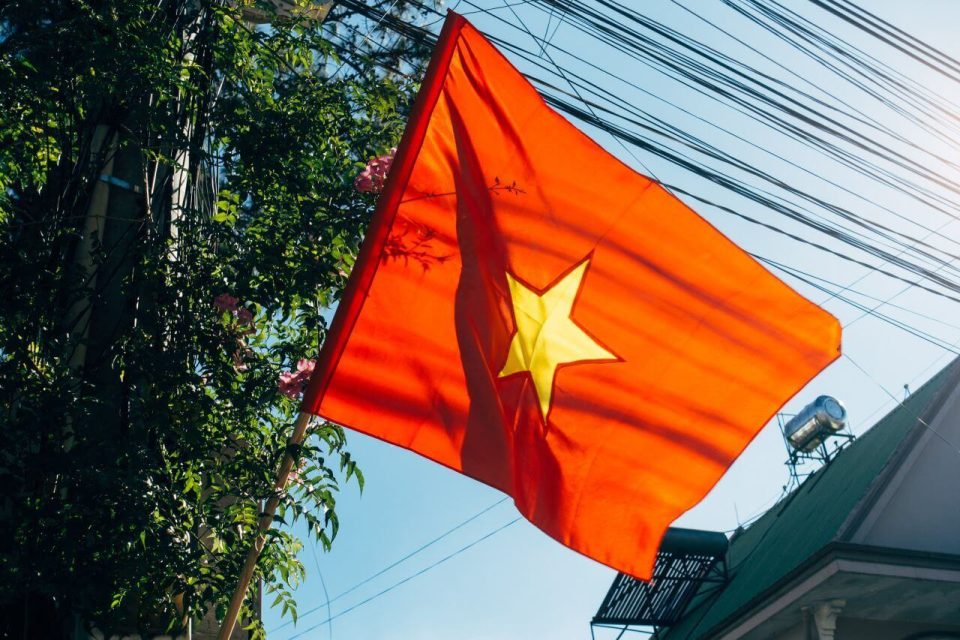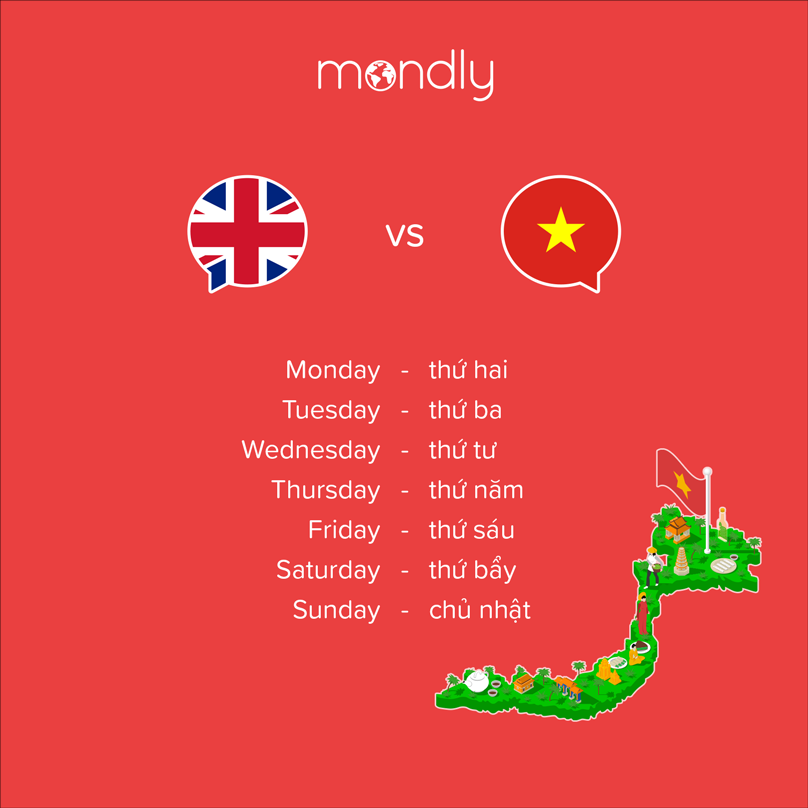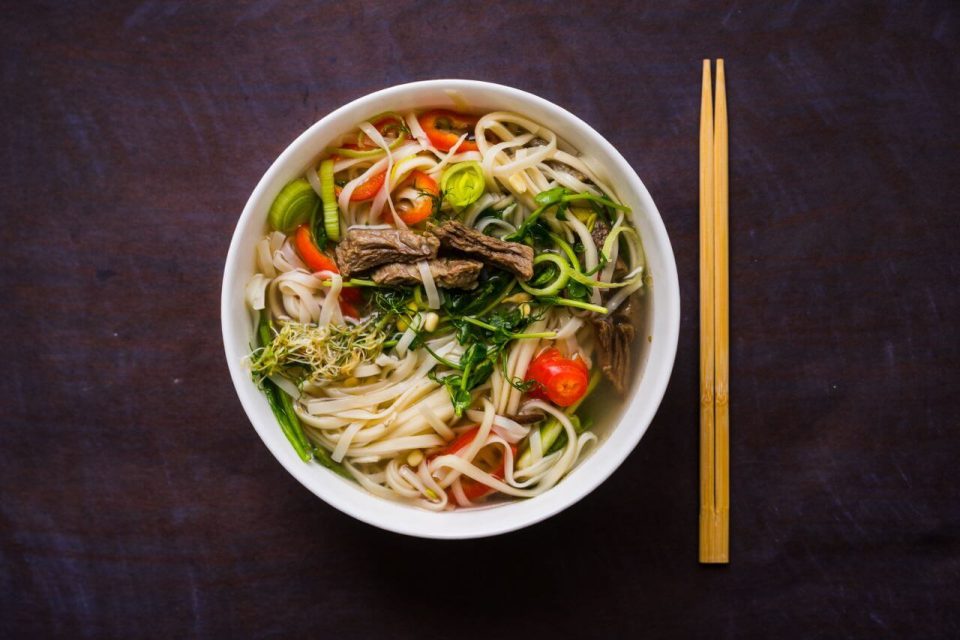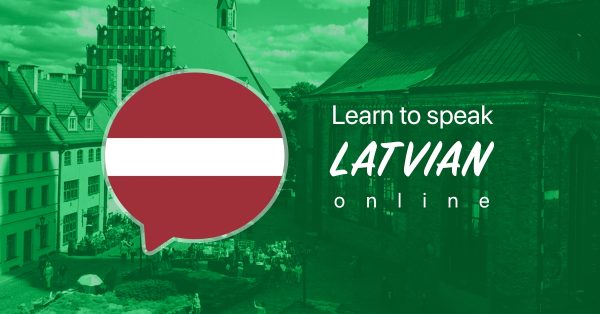Learn Latvian Online in Just 10 Minutes a Day
Although having only 1.7 million speakers worldwide, the Latvian language is now available to learn in Mondly. Start your first Latvian lesson today and find
Did you know that 100 Vietnamese words account for 50% of any communication in Vietnamese?

If you’re traveling to Vietnam, a handy list of Vietnamese words and phrases is the best thing you can “pack” in your luggage. If nothing else, knowing a few words in Vietnamese helps you connect with the place a bit more. Besides, the smiles you’ll get from the locals are worth the effort of building a basic vocabulary.
Now, it all comes down to the words you will learn. Putting up the work to learn is commendable, but not all Vietnamese words are equally important for a traveler. If you want to make the most of what you’re learning, it’s important to focus on basic, high-frequency words that are more likely to pop up in small talk and daily conversations. So here’s a list of core Vietnamese words and phrases any traveler should know.
Studies have shown that knowing as little as 100 words in Vietnamese will help you comprehend 50% of any communication in Vietnamese. This is why we focus on the most common Vietnamese words first. These everyday words are the ones you’ll use the most in your daily conversations while in Vietnam. Here are a couple of more Vietnamese words that can come in handy:
| English equivalent | Vietnamese word |
|---|---|
| near | gần |
| (to) laugh | cười to |
| (to) take | cầm |
| far | xa |
| Monday | thứ hai |
| Tuesday | thứ ba |
| Wednesday | thứ tư |
| Thursday | thứ năm |
| Friday | thứ sáu |
| Saturday | thứ bẩy |
| Sunday | chủ nhật |
| one | một |
| two | hai |
| three | ba |
| four | bốn |
| five | năm |
| six | sáu |
| seven | bảy |
| eight | tám |
| nine | chín |
| ten | mười |
| week | tuần |
| year | năm |
| today | hôm nay |
| tomorrow | ngày mai |
| yesterday | hôm qua |
| hour | giờ |
| minute | phút |
| time | thời gian |
| ugly | xấu |

Greetings and other common phrases are just as important for your Vietnamese adventure. Using the right courtesy phrases and greetings leads to more fun interactions and helps to break the cultural ice. Besides, simple Vietnamese phrases like ‘good morning’, ‘how are you’ or ‘you’re welcome’ are the most efficient way to look confident and feel like you could carry an entire conversation in Vietnamese any day now.
| English equivalent | Vietnamese phrase |
|---|---|
| How are you? | Khỏe không? |
| Very good, thank you. | Được rồi, cảm ơn cô. |
| What is your name? | Tên bạn là gì? |
| My name is ... | Tên tôi là ... |
| Nice to meet you. | Rất vui được gặp bạn. |
| Please. | Làm ơn. |
| Thank you. | Cảm ơn. |
| Thank you very much. | Cảm ơn rất nhiều. |
| Great. | Tốt quá. |
| I’m sorry. | Tôi xin lỗi. |
| You’re welcome. | Không có gì. |
| Excuse me. | Xin lỗi cho tôi hỏi. |
| No problem. | Không vấn đề gì. |
| Speak slowly. | Nói chậm thôi. |
| Where are you from? | Bạn từ đâu đến? |
| What time is it? | Mấy giờ rồi? |
| Can you help me? | Bạn có thể giúp tôi chứ? |
| How much does it cost? | Giá bao nhiêu? |
Being a tonal language makes Vietnamese hard to pronounce for some of us. If you need help with this, here’s a short video to help you learn how to pronounce some of the above-mentioned phrases:
Whether you’re a foodie or not, adding a bit of “flavor” to your Vietnamese vocabulary will surely come in handy if you’re eating out. After all, food is an essential part of any trip. You don’t just visit a new country; you also taste it. Wouldn’t you agree?
| English equivalent | Vietnamese words/phrases |
|---|---|
| head | đầu |
| hair | tóc |
| neck | cổ |
| chest | ngực |
| arm | cánh tay |
| finger | ngón tay |
| foot | bàn chân |
| face | khuôn mặt |
| eye | mắt |
| hand | bàn tay |
| nose | mũi |
| mouth | miệng |
| leg | chân |
| knee | đầu gối |
| disease | bệnh |
| allergy | dị ứng |
| fever | sốt |
| pain | đau |
| medicine | y khoa |
| pharmacy | dược |
| I feel sick. | Tôi cảm thấy say. |
| Can you help me? | Bạn có thể giúp tôi chứ? |
| Where is the hospital? | Bệnh viện ở đâu? |
| Please call a doctor. | Xin gọi bác sỹ. |
The names of the body parts in Vietnamese are some of the most common and useful words you can learn. Whether you are at the doctor’s office, in a clothing store or training for a scuba diving session, various parts of the body can pop up in conversation more often than you’d imagine.
Do you need to go somewhere? It’s best if you know the Vietnamese words for means of transportation and places you may want to go to. This way, you’ll be able to prevent difficult situations where locals cannot understand what you are trying to say.

| English equivalent | Vietnamese words/phrases |
|---|---|
| I have booked a room. | Tôi đã đặt trước một phòng. |
| The key for room X, please. | Cho tôi chìa khóa phòng X. |
| This room is too noisy. | Phòng này ồn quá. |
| When is check-out time? | Giờ trả phòng là mấy giờ? |
| Thank you for your help. | Cảm ơn sự giúp đỡ của bạn. |
| How was your stay with us? | Anh cảm thấy ở khách sạn chúng tôi thế nào? |
| Here is your bill, please look it over. | Hóa đơn của anh đây, phiền anh xem lại. |
If you need a place to crash, this course in Vietnamese phrases for common conversations about hotel stays will be handy. Learn these phrases today and make Vietnamese-speaking friends tomorrow.
That’s it! You are now officially ready to embark on an unforgettable trip to Vietnam. Don’t forget that practice makes perfect. But before you go, make sure to check out these next FAQs.
It’s important for travelers to learn basic Vietnamese words and phrases because it facilitates smoother communication in everyday situations such as ordering food or asking for directions, especially in areas where English is not widely spoken. Moreover, making the effort to engage with the Vietnamese community in their mother tongue shows respect for the local culture. This often leads to more meaningful interactions and a deeper understanding of the local customs and way of life. Additionally, knowing the language can help in emergency situations, making travel safer and more comfortable. Overall, even a small grasp of the language can greatly enhance your travel experience in Vietnam.
The Vietnamese language is relatively uniform across Vietnam, making the basic words and phrases suitable for use throughout the country. However, depending on the region you are visiting, there can be slight variations when it comes to accent, pronunciation and vocabulary. Moreover, the local dialects that that can be very different from standard Vietnamese may be more prevalent in rural or very remote areas.
Learning a few Vietnamese words can significantly impact how locals perceive travelers. When a traveler makes the effort to speak even basic Vietnamese, it often reflects respect and appreciation for the local culture. This effort can lead to warmer receptions and more meaningful interactions, as it shows a willingness to engage with the community on their terms. Moreover, using the local language, even minimally, can bridge cultural gaps and foster a deeper understanding and connection, enhancing the overall travel experience in Vietnam.
Do you want to go beyond basics and speak Vietnamese fluently? Try Mondly, the award-winning language app that is serious about making learning Vietnamese fun.
Instead of tiring yourself for hours with inch-thick textbooks, slip a 10-minute Mondly lesson into your routine and make learning a breeze. You will learn Vietnamese naturally using:
Start using Mondly for free on your computer or download the app and learn Vietnamese anytime, anywhere.

Although having only 1.7 million speakers worldwide, the Latvian language is now available to learn in Mondly. Start your first Latvian lesson today and find

You spoke. We listened! You can now learn Bengali with Mondly.

If you want to learn Japanese online, you must focus on listening to fluent speakers.
😲 wow
Hi! Is this correct?
“I’d like something without meat. — Tôi muốn một cái gì đó với thịt.”
I’ve been learning some Vietnamese, and this seems to suggest “with”, not “without”!
Ăn chay may be more correct, it states you want to eat something vegetarian